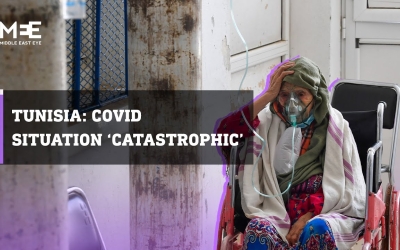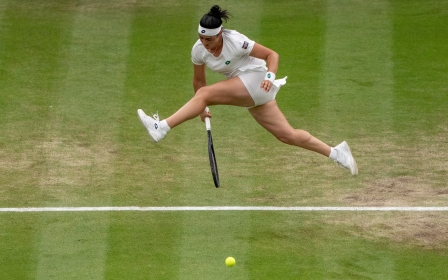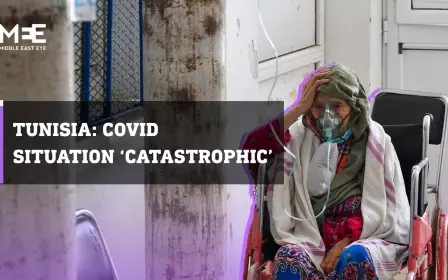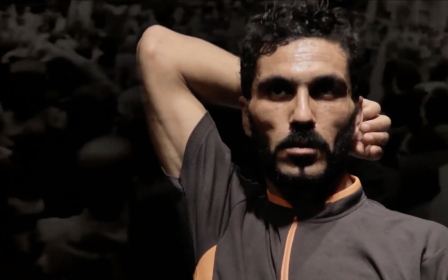Tunisia: Citizen-led initiatives rally to bridge gap in Covid-19 response
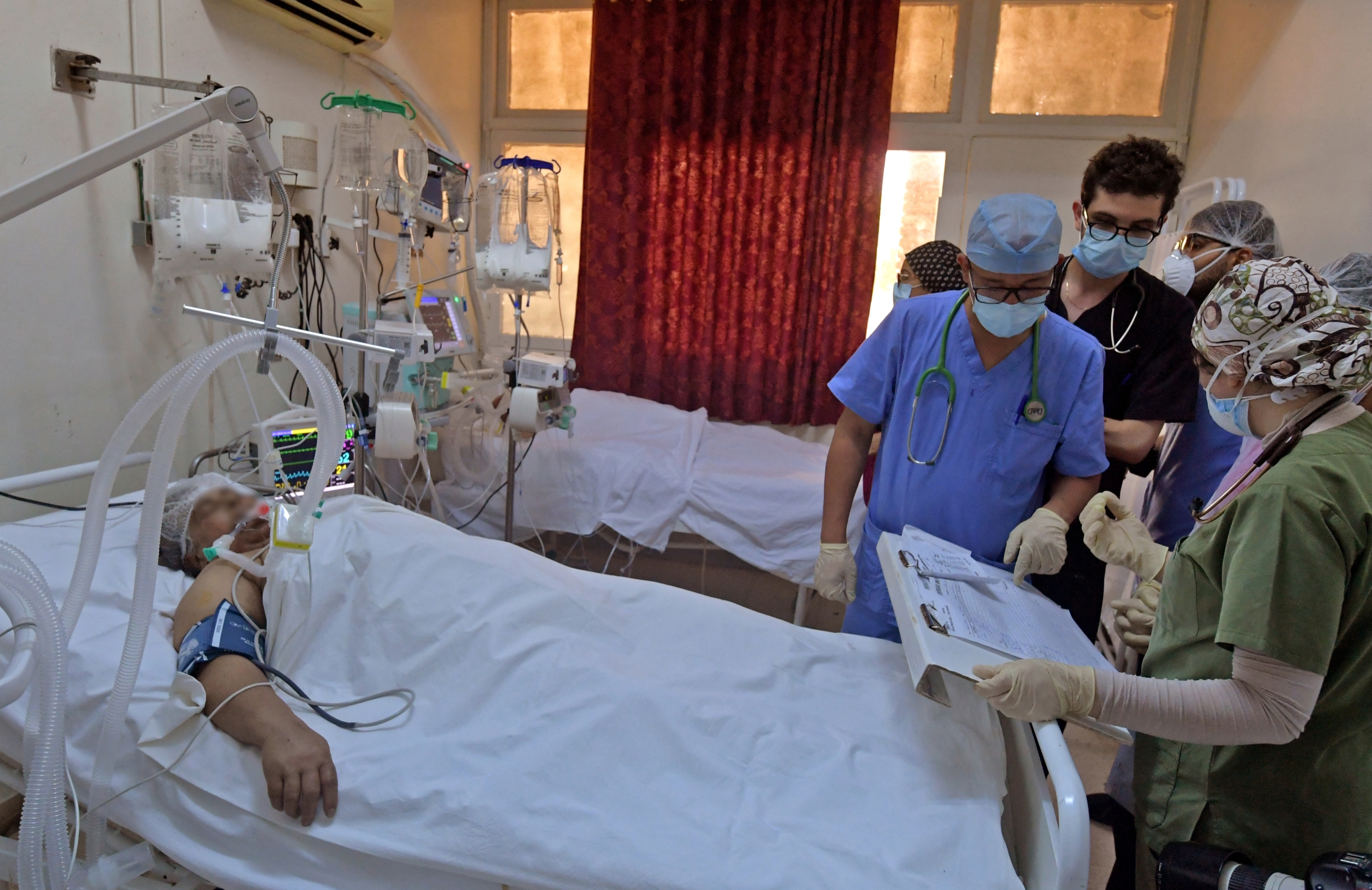
Tunisian citizens and civil society, frustrated by the authorities' perceived mishandling of the Covid-19 pandemic, are taking the initative in a bid to cover shortages of vaccines, medical supplies and accurate information.
Tunisia is currently seeing a catastrophic spike in Covid-19 cases and its health system is buckling under the pressure. The government is mired in political deadlock and economic turmoil, and has been forced to beg for international donations to bolster its fight against the pandemic.
"The ship is sinking," said Health Ministry spokesperson Nisaf Ben Alaya in a recent radio interview.
Last week the country recorded nearly 10,000 new cases and 134 deaths in a single day - Tunisia's highest daily rate since the beginning of the pandemic, and the highest death rate in the region at the time.
Alarmed by the record case levels, some Tunisians are posting under the hashtag #SaveTunisia, calling for international help and greater vaccine parity.
The country’s fight against the pandemic has been marred by a slow vaccination campaign, incoherent and ever-changing government restrictions, and a rise in vaccine mistrust.
Now, Tunisian civil society as well as ordinary Tunisians are racing to bridge the gap in the nation’s Covid-19 response.
In the last week, hundreds of local associations, civil society activists and members of the Tunisian diaspora have mobilised to pressure wealthier nations to donate vaccines, to set up crowdfunding campaigns for oxygen units and medical gear, and to raise awareness about sanitary rules and vaccine science.
Online petitions calling for more international support and an intervention from the World Health Organisation have garnered tens of thousands of signatures. Tunisian tennis sensation Ons Jabeur has put the racket she competed with at her historic Wimbledon quarter-final up for auction in an effort to raise money for Tunisian hospitals.
Even the Tunisian embassy in France has called on Tunisian residents in France to donate medical material and equipment to Tunisia’s health institutions.
Meanwhile, Saudia Arabia has pledged to send one million Covid-19 vaccine doses as well as medical supplies, beds and respiratory devices. A delivery of 500,000 doses from the UAE arrived in Tunis on Tuesday. China, Turkey, and France have also promised donations.
Medical emergency
According to the Tunisian Health Ministry, over 92 percent of ICU beds and oxygen-fitted beds are full. Doctors and nurses are overwhelmed by the rapid increase of critical cases and deaths. Videos of patients lying on the floor of hospitals, struggling to breathe, have circulated on social media.
In response to this, ATUGE UK, the UK branch of the Association Des Tunisiens Des Grandes Ecoles, an association for Tunisian graduates of France's elite universities, launched a fundraiser earlier in the month on JustGiving to raise money for oxygen concentrators. It raised £15,000 in the first day and over £70,000 to date.
President of ATUGE UK, Samia Rezgui, said that 50 oxygen concentrators had already been ordered and would be delivered to Tunisia this week. The organization plans to send 5 oxygen concentrators per hospital to different hospitals across Tunisia. Rezgui said that donations had mostly come from Tunisian diaspora in the UK, but also Tunisians across the world.
'We have to save our own lives, we can’t watch this crash without doing anything. We have a historical responsibility'
- Bayram Kilani, artist
“Our plan is to continue supporting Tunisia and to continue working on our objectives until Tunisia is in a much better sanitary situation” said Rezgui.
Tunisian artist Bayram Kilani said that government incompetence had forced Tunisians to “save themselves”.
A Tunisian government spokesperson had not responded to a request for comment on criticisms of its record at the time of publication.
“We have to save our own lives, we can’t watch this crash without doing anything. We have a historical responsibility… society is in the process of revolting in order to save our own lives.”
Kilani is part of the new Civilian Commission for the Fight against Covid-19 - or what Kilani calls “a citizen blockchain” - a network of roughly 400 different associations in 24 governorates across Tunisia, all organizing to provide oxygen units, PPE, and medical supplies, as well as to coordinate with doctors, entrepreneurs and volunteers.
Kilani says the name of the “Commission” is a little tongue-in-cheek: “the government actually created their own commission but it didn’t work”.
The group, which includes prominent civil society activists, aims to centralise and streamline efforts to combat the pandemic as fast as possible, and there are already plans to launch a website to connect doctors with volunteers and platform approved medical advice.
O
ne of Kilani’s main criticisms of the government’s handling of the pandemic is their reticence to digitise.“This is a country where young people use technology a lot and they don’t even have access to an app like in France… the government is living in a previous century.”
Middle East Eye propose une couverture et une analyse indépendantes et incomparables du Moyen-Orient, de l’Afrique du Nord et d’autres régions du monde. Pour en savoir plus sur la reprise de ce contenu et les frais qui s’appliquent, veuillez remplir ce formulaire [en anglais]. Pour en savoir plus sur MEE, cliquez ici [en anglais].


